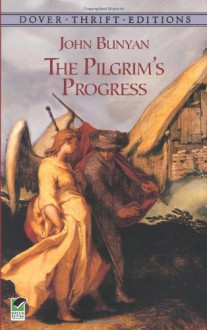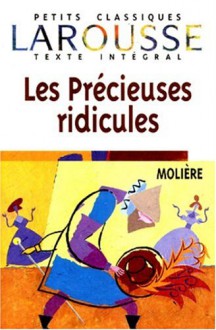
Well, I will have to thank the Classics of the Western Canon discussion group for selecting Pilgrim's Progess for this month's read because otherwise it would have continued to sit on my shelf until such a time as I got around to reading it. Okay, I probably don't follow the readings of many of these groups as closely as some do, but they can be good to spur me on to reading a book that I probably wasn't thinking of reading at the time. The discussions on this book have also been interesting to follow as well, though I do note the comments do tend to come quite thick and fast and I end up getting left behind.
It is also been interesting that my evening church has been studying the Book of Hebrews (or at least the last part of the book) because there are connections, and references, in that part of the Bible to Bunyan's work. Mind you, Bunyan draws heavily on the Bible in this book, but the exploration of the struggles of the Christian life is a central theme to this work.
Anyway, instead of simply dumping my thoughts onto the page as I normally do, I thought that I might discuss a number of ideas that came to me as I was reading it. Also, since this is probably one of the most well known books in the English Language, I probably don't need to give a synopsis, or a background, and if you want one there is always Wikipedia. Oh, and I should also mention that Pilgrim's Progress is listed as number two on The Guardian's list of 100 best novels of all time.
1) Allegory is dead
Okay, there might be some debate about this, but after a couple of comments on the lack of allegory in use today I realised that people simply do not write like this anymore. In a way the last great allegorical novels were Animal Farm by George Orwell and The Lion, the Witch, and the Wardrobe (as well as the subsequent books in the Chronicles of Narnia) by :C.S. Lewis. Mind you, I'm not really sure if allegory was actually all that big simply because there are very few allegorical novels that come to mind – Piers Plowman and Gilliver's Travels are two more, but other than that I really can't think of any others.
The main reason that I suspect that people don't write allegory is simply because it is really hard to read. However there are a couple of reasons why authors occasionally do so:
a) The literature is subversive: One of the reasons is because if they were to say what they were saying directly, and the literature fell into the wrong hands, then the author would land up in an awful lot of trouble. This was the case with some of the more difficult books of the Bible, such as the book of Revelation (as well as Gulliver's Travels and Animal Farm). By writing the way that they did the authors were able to challenge the system, or criticise the ruling authorities, without fear of retribution. As with the case of Revelation, John the Baptist was able to continue to promote his religion in an environment that had effectively banned it.
b) The concepts are difficult: This is probably the main reason why Bunyan wrote using allegory (and in a way borrows the style from Jesus who used parables for a similar purpose). What Bunyan was trying to do was to paint a picture of the Christian walk, and to simply write like your standard, everyday theologian would have probably put quite a lot of people off and the book would never have become as well known, and as popular, as it did. Thus through the use of allegory Bunyan is able to turn a dry, and somewhat very heavy topic, into a form that is not only accessible, but also quite enjoyable.
2) The text is very theological
Sure, Pilgrim's Progress is a story about a man, in fact a person whom is referred to as an 'everyman' (namely a type of character that anybody and everybody can relate to), who leaves his family and goes on a journey to the Celestial City, but that does not mean that there is no actual discussion of Christian theology. In fact there is quite a lot of discussion about the nature of faith and spirituality. As Christian travels on his journey, not only must he overcome obstacles, but he also meets various people, some good, some bad, and enters into conversation with them. Through these conversations we learn about quite a few aspects of the Christian faith and concepts such as grace, the nature of God, and salvation, are all explored. While the book does paint a number of pictures, Bunyan to does resort to simply explaining a number of concepts through the mouths of his characters.
3) You have a lot of time in prison
Okay, according to Wikipedia there is a debate as to whether this book was written during his twelve year stint in goal, or the much shorter stint a little later, however it is generally agreed that it was written while he was in prison. Okay, while prison is probably not a place that any of us should ever aspire to spend the rest of our lives, at least what it does give us is a lot of time, which means we can sit down and write stuff without having to be interrupted with work. It is also a place of solitude meaning that you are less likely to be disturbed.
Okay, it probably wasn't a prison like this one:

or this one:

but that does not necessarily mean that it was any better, or any worse. I'm not sure whether he had to wander around wearing orange overalls, or even if he was given three meals a day (if you were in prison back then you were not guaranteed any of the things that prisoners these days are guaranteed – well, yes, a roof over your head, but that didn't necessarily mean that the place was dry), however he did have time to write, which meant that he must have had access to writing materials.
One person even suggested that quite a lot of books were written in prison, but once again that is not surprising because, as I mentioned, you do have a lot of time on your hands in there. Mind you, not all of them were good, or even popular, though I must admit that [author:Mark Chopper Read] did generate a decent income from his writings (and even boasted about how he, an uneducated illiterate became a best selling author while all of these university types, such as me, can't get a single book published – but then people like books about crime).
Which brings me to:
4) Bunyan didn't go to school
Well, maybe he did, but apparently he didn't stay there long enough to be considered educated, and he certainly wouldn't have had the education that many of the other great writers of the time would have had, yet much like Chopper Reed, while many of them were writing rubbish, he not only wrote a best seller, he wrote a classic (which sort of outclasses Chopper's efforts in my books).
Another reason I mention this is because there has been some suggestions that he was inspired by [author:Dante] (hey, another allegory, I forgot that one) but there is one big problem with that – he couldn't read Italian, and it wasn't translated into English until the 19th Century. Sure, Dante goes to sleep and has a dream, as does Bunyan, but that does not necessarily mean that he copied Dante, or was even influenced by him (how could he have been). Rather, what I suspect both authors are doing is bringing the reader on a journey with them, and by placing themselves into the text and then turning it entirely into a dream sequence I suspect gives more credence to what they are trying to say.
Anyway, here is a picture from Wikipedia:

The other thing that I want to mention are references to classical literature – there aren't any. A lot of writers at the time where returning to many of the texts of the Greek and Roman world and were drawing inspiration from them. However Bunyan wasn't one of them, which is not surprising since he didn't have a classical education. Rather, the only book that he draws upon is the Bible. In fact there are quite a lot of Biblical allusions in the text, many of them being quite obscure. What I suspect Bunyan is doing is drawing upon the parables of Jesus, as well as other Biblical allusions, to paint his picture.
For instance there is a section where Pilgrim passes Mount Sinai, which is on fire, while travelling towards Mount Zion. This is taken straight out of Hebrews 12, where Mount Sinai represents the law, and Mount Zion represents grace. What Bunyan is doing here is showing how Christians can be tempted to earn their salvation by being good, however that is not actually how salvation comes about. One cannot be so good as to earn their salvation, and even if they are, there are still deeds that have been done that cannot be wiped out by a few good deeds. It is sort of like me going and robbing a bank and then giving all of the money to a charity. Sure, I did a noble thing by giving it to charity, and sure, the bank may (and probably did) deserve to be robbed due to the fact that the money that it has was no doubt earned through nefarious means – but that does not exonerate me from my act of violence. Even if one could say that the bank itself was bad, there are still innocent people working in the bank (such as the teller in whose face I stuck the shotgun, or the old granny who was cashing in her pension cheque). In the end, the law does not care whether I robbed the bank to give the money to the Salvos (who wouldn't accept it anyway), or that they bank had committed fraud and were laundering money, I still committed a crime, and no act on my behalf will be able to exonerate me from that crime. I have to be punished, and the only way that I can escape that punishment is for somebody else to takes that punishment on my behalf.
5) Bunyan did not live in the 20th Century
Yeah, I know, that's a no-brainer, but there is a reason why I have raised that point, namely because there are churches out there that like to try and claim Bunyan as one of their own. The problem is that the Christian sect that Bunyan was a practitioner of, and was eventually gaoled for, no longer exists. The thing is that Bunyan was what was termed as a 'non-conformist', and honestly, that classified an awful lot of people. Milton was a non-conformist as well (though I believe the word puritan is more appropriate to him – another sect that no longer exists). The thing about non-conformists is that they were not Anglicans (Epsicopalian or Church of England). In Bunyan's day the only place you could worship, and the only people that were allowed to preach, were Anglican churches. If you live in England and you were not an Anglican you could get yourself into a lot of trouble, especially if, as Bunyan did, you were holding regular church services. However, the thing about non-conformists is that they were not: a) Baptists; b) Methodists; c) Assemblies of God; or d) Pentacostal either. Okay, those denominations may have eventually emerged from the non-conformist movement, but that does not mean that a non-conformist subscribes to any of those particular denominations – they simply did not exist.
6) Not everybody in Bunyan's day were Christian
One of my pet peeves is when Christians talk about how we live in a post-Christian age, yet in many cases that is not really true. You see, if everybody in Bunyan's day were Christians then he wouldn't have needed to write this book, or his others (such as [book:A Journey to Hell]. Okay, while the multitude of faiths that we have today (think Hinduism, Buddhism, etc) didn't exist in Europe back then, and the only religion you would find was Christianity (though there were Jews), and everybody went to church, it did not mean that they actually believed it. In fact many of the people who went to church went there because it was expected of them, and even then it was mostly a middle and upper class phenomena.
If everybody was Christian then, as I have suggested, you would not have had Bunyan writing his book, or even characters such as the Wesleys going out and preaching to the people of England. Even then, the Anglican church was not necessarily a place that would teach evangelical Christianity, and there were quite a lot of people out there that simply did not like the way the church operated. What Bunyan is showing in his book suggests that even though people would go to church, they were not necessarily saved, and in many cases simply left standing in the City of Destruction.
Also, consider the fact that Christian leaves his wife and children suggests that even when one was living in an apparent Christian country, one would still be mocked and ridiculed for their faith. It is interesting that they don't follow him on his journey, in a sense rejecting what he believes. In the end though, what the book does in a way is to challenge an apathetic society into understanding more about the faith to which their nation allegedly adheres.
7) There is a sequel
You know how there will be this really good movie, and the movie is so good that they go out and make a sequel which ends up being rubbish. Well, that is the case with Pilgrim's Progress. Okay, I probably shouldn't be that harsh on the second part, but it is interesting that a lot of people and commentators seem to ignore this second part and only focus on the first. I never even realised that there was a second part until I picked the book up in university and read it then, because I have only ever thought that the story was about Christian's journey. However, I have never been able to get into the second part and have found it somewhat more difficult than the first. While I might suggest that it simply repeats everything in the first, it has been suggested that this part complements this first through its use of having Christian's wife take the journey, and that it also paints the picture of how the journey is open to all.
So, I think I will leave it at that, though I did want to mention a more disagreeable aspect that would probably make us in the modern world a little uncomfortable. There are sections where we have black people representing evil, and in one instance this black person is cleaned and becomes white. While this is allegorical, I did find it a little confronting, particularly since it could be read as suggesting that white people are holy and righteous, while coloured people – depending on their colour, are not. I also didn't get to mention that this is probably one of the books that spurred the creation of the modern fantasy genre, but it is late so I will simply mention it, and then go to bed.


 Log in with Facebook
Log in with Facebook 












